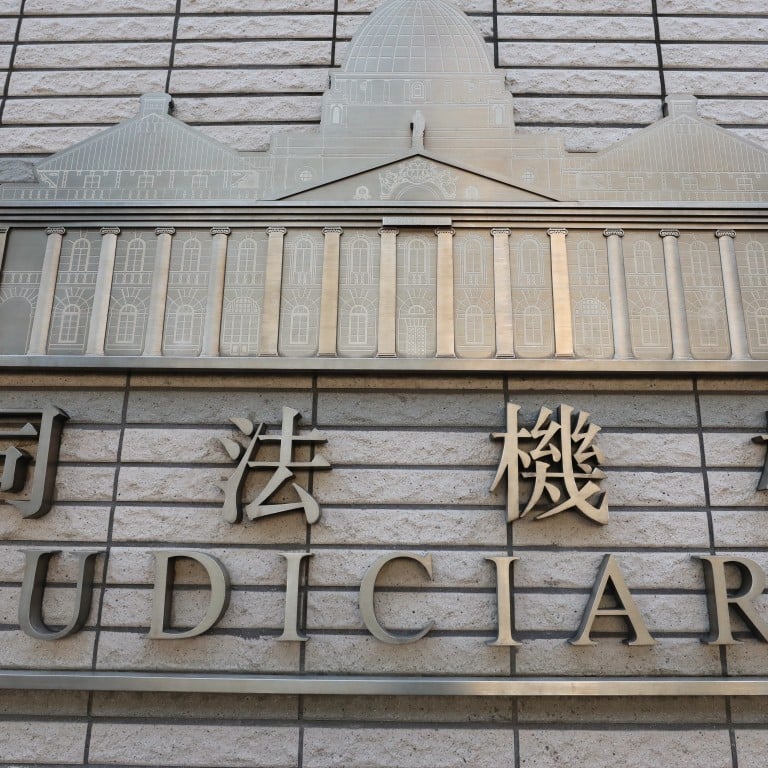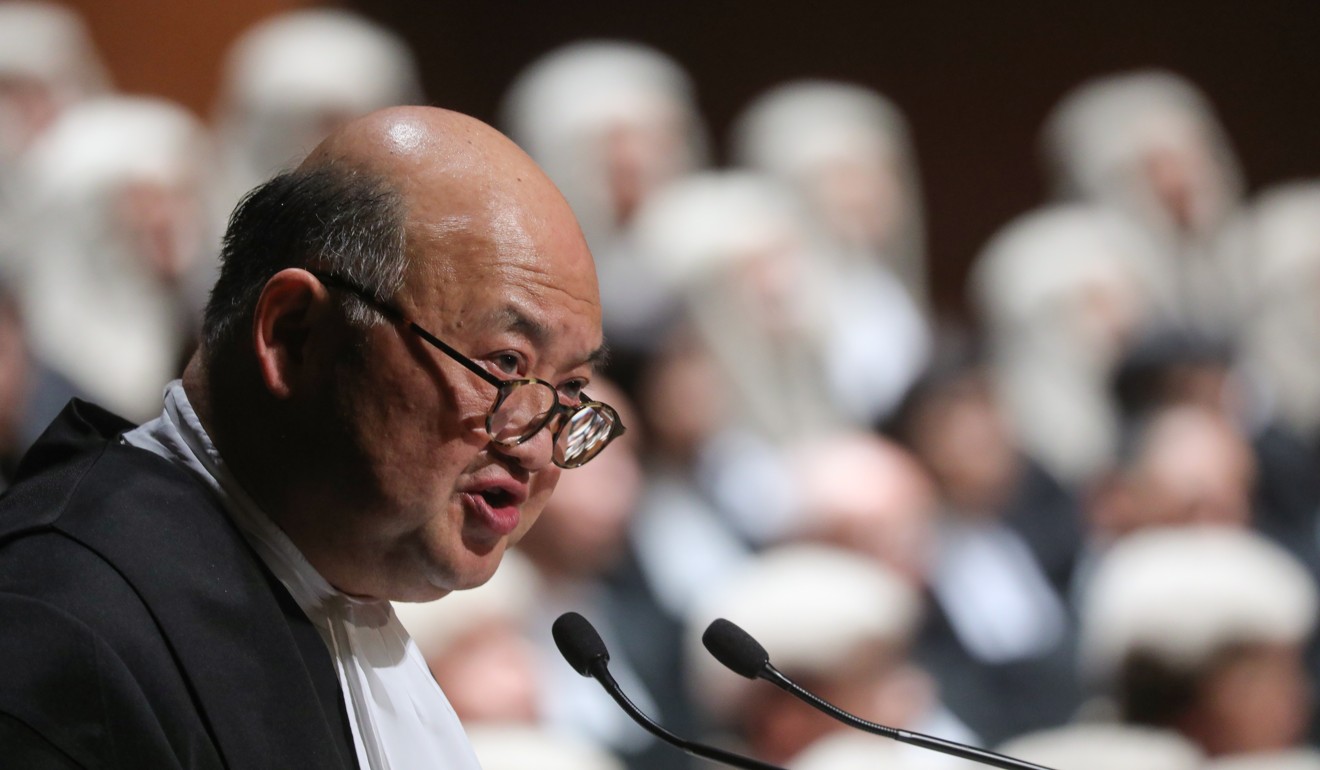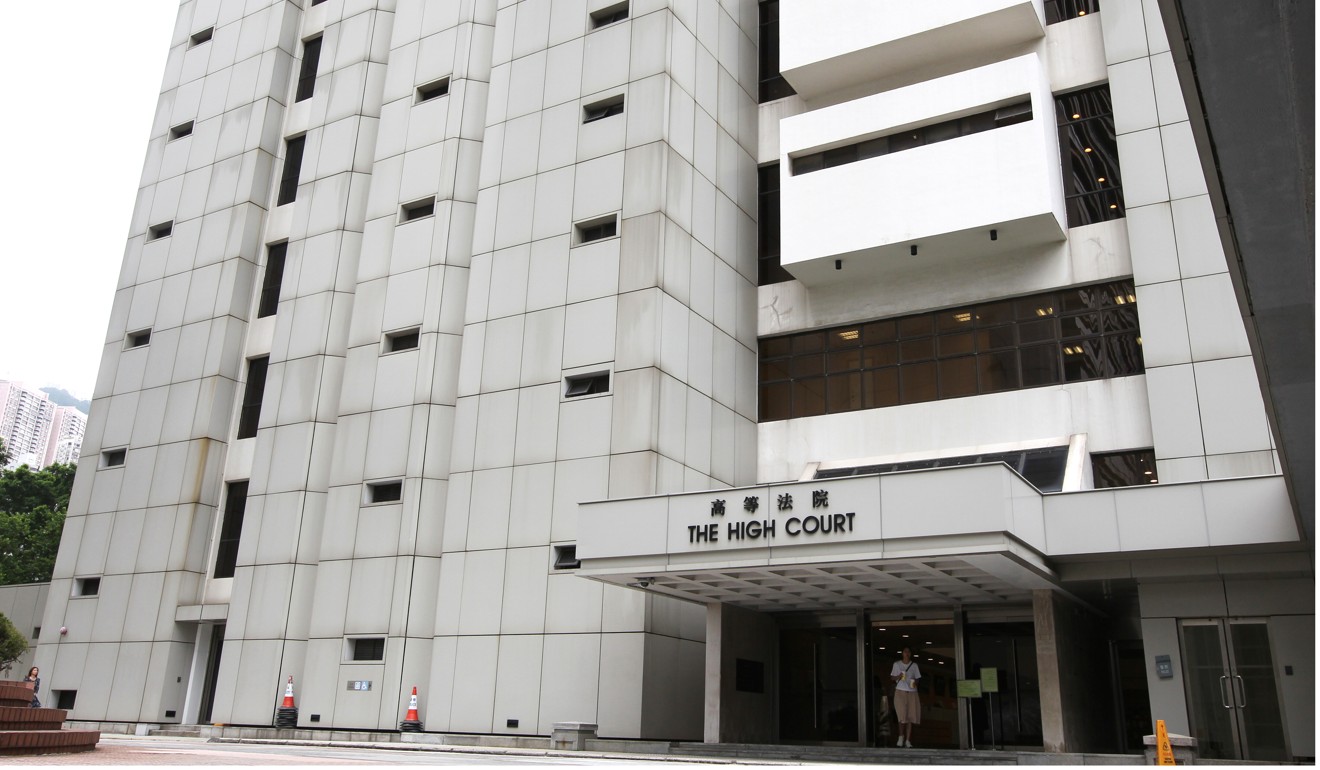
Coronavirus: Hong Kong courts consider tech options as fifth of caseload affected by health crisis, top judge reveals
- Chief Justice Geoffrey Ma says judges and judicial officers have been exploring ways to increase court services
- He accepts that courts could conduct hearings with the help of telephones, videoconferencing and other visual aids, subject to feasibility and security
In a statement issued on Wednesday night, Geoffrey Ma Tao-li said judges and judicial officers had been exploring ways to increase court services, after some 18 per cent of the annual caseload at all court levels had been affected since January 29 because of the Covid-19 crisis.
Hong Kong courts and specialised tribunals handled a caseload of 551,276 last year, with the bulk, 332,746, by magistrates.

Defendants on average waited 41 to 51 days from entering a plea to standing trial before a magistrate, while those appearing before a jury in the High Court had to wait 167 days from the date of indictment.
Courts have been closed intermittently since late January, in line with the government’s work-from-home arrangements to tackle the coronavirus outbreak.
Coronavirus: tougher measures may come this week for Hong Kong
The judiciary had reopened court registries and offices over the past two weeks with a view to resuming normal court operations on Monday, but on Sunday it announced the plan would be pushed back by another fortnight in light of a surge in Covid-19 infections in the city.
Although most civil and criminal cases have been postponed, the High Court has remained open on most working days to manage urgent and essential matters. The lower magistrates’ courts were also open four days a week to handle fresh remand cases and bail applications.
On Wednesday, Ma said the judiciary would consider allowing certain types of proceedings to resume soon, while court activities would remain limited.
He accepted that courts could conduct hearings with the help of telephones, videoconferencing and other visual aids, subject to feasibility and security.
“The greater use of technology has been urged on the judiciary and generally I agree with this approach,” Ma said.
“The only qualification … is that the use of such means to facilitate hearings must not only be logistically feasible, but also legal in terms of being permitted by applicable court rules and procedures. Additionally, information technology security issues must be addressed.”
In an unprecedented move last month, the High Court held a hearing with parties involved in a civil case via telephonic conferencing, the first such example since the virus outbreak.

Mr Justice Russell Coleman, who presided over the hearing, later explained in a written ruling that it was the obvious solution to “the current unfortunate and frustrating circumstances”, where face-to-face proceedings were not viable. He also called for the legal profession to reassess how to best manage cases in times of public health concerns.
In a review in 2009, the Civil Justice Reform, comprised of a panel of judges and legal experts, explored the possibility of permitting telephonic hearings in civil proceedings in the High Court and District Court. But it was not recommended because of doubts about how much cost could be saved and whether lawyers were interested in using telephones. At present, it is only adopted in direction hearings in commercial arbitration.
Melissa Kaye Pang, president of the Hong Kong Law Society, echoed Ma’s view.
“This outbreak has given us an opportunity to make that quantum leap in embracing technology,” she said. “It is certainly a positive direction.”
She said judges should consider managing more cases in writing subject to parties’ consent, while noting that aspiring lawyers had been unable to practice because the courts had not admitted newcomers since the adjournment.
Pang said the society was prepared to provide technological support and assist smaller firms in securing grants to upgrade their systems, but she hoped the government could provide more funding to subsidise their needs.
Legal sector lawmaker Dennis Kwok Wing-hang said many other jurisdictions including Britain and Singapore were already embracing such conferencing technologies – and Hong Kong should follow.
The barrister also drew attention to the HK$682 million funding approved in 2013 for the courts to implement technological reform.
“Time to put these resources into action,” Kwok said.
Purchase the China AI Report 2020 brought to you by SCMP Research and enjoy a 20% discount (original price US$400). This 60-page all new intelligence report gives you first-hand insights and analysis into the latest industry developments and intelligence about China AI. Get exclusive access to our webinars for continuous learning, and interact with China AI executives in live Q&A. Offer valid until 31 March 2020.

